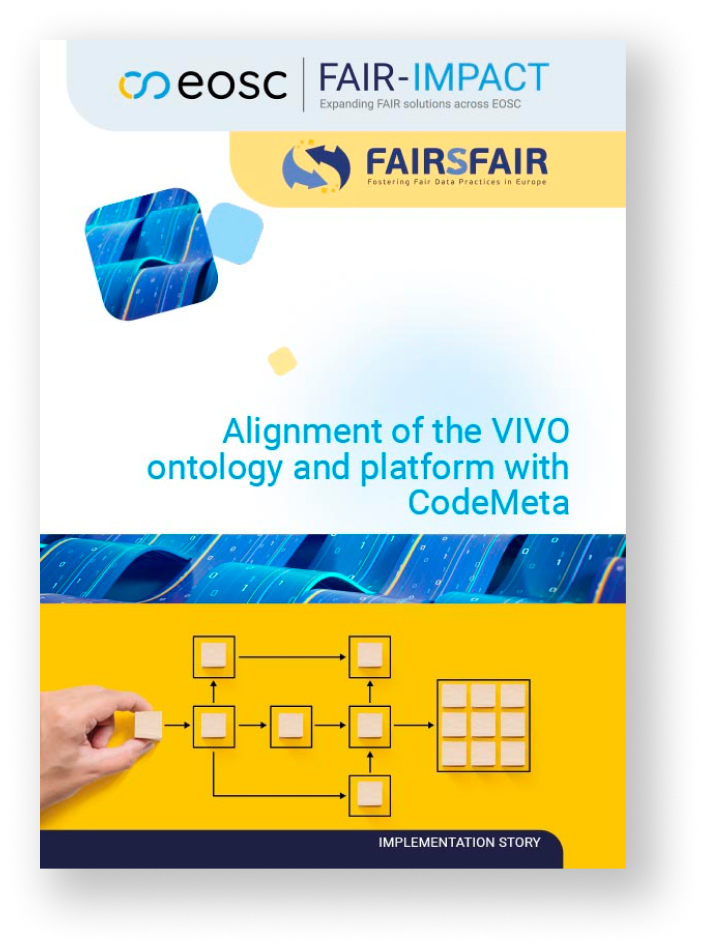Alignment of the VIVO ontology and platform with CodeMeta
Software plays a crucial role in academic research, not only as a tool for data analysis but also as a research outcome or result, or even the object of research itself. FAIR (Findable, Accessible, Interoperable, Reusable) research software can increase the transparency, reproducibility, and reusability of research. For this to happen, software needs to be well-described (by metadata), inspectable, documented and appropriately structured so that it can be executed, replicated, built-upon, combined, reinterpreted, reimplemented, and/or used in different settings. The FAIR4RS Principles aim to guide software creators and owners on how to make their software FAIR. FAIR-IMPACT offered two support actions designed to enhance the FAIRness and impact of research software:
- Assessing and improving existing research software using a new extension of F-UJI which implements some of the metrics for automated FAIR research software assessment.
- Implementing the Research Software MetaData (RSMD) guidelines for better archiving, referencing,describing, and citing research software artefacts.
This FAIR Implementation Story outlines the specific aims and actions of the VIVO community in relation to their participation in the second (RSMD) support action.
"These efforts aim to foster collaboration and encourage the adoption of the improved software cataloguing features within the VIVO platform."
Supported applicants: Dragan Ivanović, Ivan Mršulja, Miloš Popović, Faculty of Technical Sciences, University of Novi Sad
